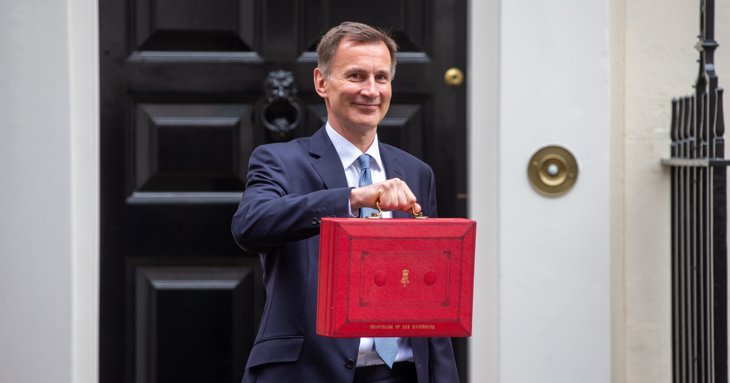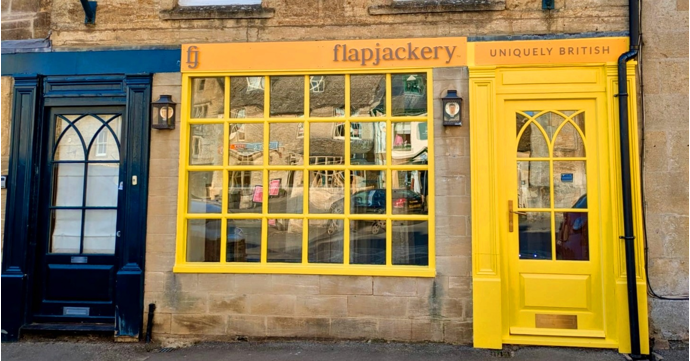Chancellor Jeremy Hunt delivered his Autumn Statement to parliament on Wednesday 22 November 2023, claiming the economy is 'back on track' and announcing everything from tax cuts and business rates discounts to planning reforms.
Organisations, including CBI South West; accountants Crowe and Hazlewoods; and Frank Smith & Co Solicitors share their reactions on what the announcement means for Gloucestershire businesses.
From April 2024, Hunt is abolishing Class 2 National Insurance contributions and reducing Class 4 National Insurance contributions from nine per cent to eight per cent for the self-employed — a move he says will save around £350 per year and benefit nearly two million self-employed people.
He plans to reduce National Insurance contributions for employees from 12 per cent to 10 per cent, claiming that this will save the average earner £450, from January 2024.
And in what he called 'the largest business tax cut in modern British history', the chancellor is also making 'full expensing' for businesses permanent, at a cost of around £11 billion per year.
CBI South West director, Ben Rhodes, said: 'While the move on National Insurance will give hard-pressed households some much needed breathing room, making full capital expensing a permanent feature of the tax system can be transformational for accelerating growth and improving living standards in the long-term.
'Helping firms to unleash pent-up investment is critical to getting momentum into the economy. Making full expensing permanent will give firms the stability they need to press on with decisions on investment whilst keeping the UK at the top table internationally for investment incentives.'
Tax partner at Crowe's Cheltenham office, Nick Latimer, said: 'The two per cent cut to NIC for employees is larger than anticipated, and much more of a crowd pleaser than the rumoured inheritance tax reform. The chancellor was silent on this along with capital gains tax and non doms. Has this been kicked down the road until we get closer to an election?
'There were still no changes to the personal allowance and income tax bands, meaning that we will still see the continuing impact of fiscal drag. This loosening of fiscal policy could also prevent any further reductions to interest rates. Any benefit of tax cuts could therefore be removed pretty swiftly for those families with mortgage payments to make.'
Paul Cox, corporate
tax partner at Crowe’s Cheltenham office, added: 'While the statement
provided support for the self-employed with Class 2 NI being abolished and
Class 4 being reduced by one per cent — it did not provide enough support to the majority
of the owner-managed and mid-tier businesses in the UK.
'The Autumn Statement does not go far enough to act as a catalyst for companies
to invest, innovate and grow. The chancellor should have been bold and
reduced the main rate of Corporation Tax.'
Tax and property partner at Hazlewoods, Nick Haines said: 'Whilst welcome, it should not be forgotten that the freezing of the personal allowance and basic rate bands, coupled with high wage inflation, has resulted in people paying much higher tax than they would have paid, had those bands increased in line with inflation.
'From a company tax perspective, the chancellor announced that ‘full expensing’, where unlimited capital investment in new plant and machinery can be deducted in full for corporation tax purposes, will be made permanent; whereas, when announced in the spring, it was intended to be a temporary measure until 2026.
'Again, a welcome extension to the scheme, but for the vast majority of businesses, the annual investment allowance of £1 million per year more than covers intended investment, so only the largest companies will benefit. However, the hope is that this will encourage approximately an extra £3 billion of investment each year, with a consequential benefit to economic growth.'
While Frank Smith said: 'The reforms to business investments by way of a business tax relief may or may not be practical in reality. For every £1 that a business invests in IT, machinery and equipment, they can claim 25 pence in corporation tax. Businesses or companies can do this at once as opposed to having to offset the cost against corporation tax. Are some of these statements with political intent?'
Hunt also said that he would extend the business rates discount for hospitality, retail and leisure for another year, at a cost of £4.3 billion.
Haines said: 'Extensions were announced for business rates reliefs, including the 75 per cent discount for the retail and hospitality sectors and a freeze on the small business multiplier, both for a further year. As an early Christmas present, alcohol duties will be frozen until Thursday 1 August 2024.
'The chancellor had previously announced that tax cuts would only be made when it was sustainable to do so. Given the OBR forecasts for growth are lower than those predicted in March, and debt levels at 94 per cent of GDP (albeit lower than the 100 per cent originally predicted), to many this will be seen as a desperate attempt to bring back traditional Conservative voters.'
Cox continued: 'Keeping the cliff edge. No change to the £85k VAT registration threshold. Keeping it at this level is most likely the worst of both worlds. An increase could have encouraged small businesses to grow, whereas a reduction would have meant an adjustment period for small businesses after which the threshold would no longer act as a barrier to continued growth.
'The hospitality and leisure sector seemed to particularly benefit today but it was disappointing that Crowe UK’s call for a reduced VAT rate for the sector was not taken up. Whilst the sector will benefit from business rates savings, it faces higher costs, for example, through increases to salaries, so a reduction in VAT would have helped to reduce prices and/or aid profitability.'
Hunt said he would introduce measures to speed up and reform planning , too.
Smith said: 'From a property perspective, one of the promises made by the chancellor is to reform the planning system. He argued that it takes too long
to approve infrastructure projects and business planning applications. As such,
from next year councils will be able to recover the full cost of major planning
applications as an incentive to make planning decisions in a shorter period. If
they fail, the companies will be refunded automatically.
'According to the Institute of Civil Engineers (ICE), major planning applications such as those for infrastructure can take up to five months longer than it took ten years ago. However, although the reforms may have been proposed with good intentions, the concern is that in order to stick to deadlines, due diligence will be overlooked. This could result in environmental concerns or perhaps approval of planning applications where sub-standard materials are used to the detriment of purchasers.
'Therefore, in order for the reform to work, it would be necessary to have a due diligence system that will be capable of being supervised and enforced.'
Hunt also made reference to the extra £1 billion of Levelling Up money announced on Monday 20 November 2023 — which included £20 million for the Golden Valley Development in Cheltenham and £11 million for Gloucester's Greyfriars Quarter.
Likening the chancellor's plans to Cheltenham's famous festival, Haines concluded: 'At the start of Jeremy’s national hunt for growth, the Autumn Statement felt more Point to Point than Gold Cup standard, but perhaps he has left more up his sleeve for announcements in March, which will surely see them set out their stall for the final furlong to the general election.'





















